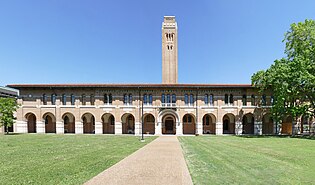A biological scientist position is available immediately at the Zhang Lab in the Department of Pharmaceutics, College of Pharmacy. The candidate in this position has the opportunity to be co- authored on peer-reviewed publication and patent. The project starts in the summer of 2024.
RESPONSIBILITIES
The candidate is expected to work on a NIH-funded research project that focuses on testing the efficacy of nanoformulation-based experimental therapeutics:
- Test nanoformulations of small molecule immune modulators in genetically engineered cell lines and human PBMCs isolated from patient blood.
- Culture bone marrow derived cells, perform flow cytometry analysis of immune cells phenotypes.
- Establish mouse tumor models, test the nanoformulations in mouse tumor models.
- Analyze data; draft protocols and SOPs.
WHO ARE WE LOOKING FOR
- Highly motivated individual who recently graduated with B.S. or M.S. degree in one of the following areas: Biological/Biomedical Engineering, Biology/Biological Sciences, Medical Sciences, Biochemistry, Molecular Cell Biology, Microbiology and Cell Science, Pharmacology, or Pharmaceutical Sciences. Ph.D. degree is not required, but applicant with PhD degree can also apply.
- Experience in cell and tissue culture, molecular biology techniques (PCR, Gel electrophoresis, western- blot, etc), and data analysis.
- Knowledge and experience in flow cytometry, ELISA
- Experience with handling small animals and basic animal surgery skills.
- Ability to work in a team-based environment and to communicate in a multidisciplinary team.
HOW TO APPLY
Please send your 1. CV (including scientific publications, posters, and talks) and 2. Cover letter describing your career goal, motivation, and your qualifications to Dr. Fan Zhang (fzhang1@ufl.edu).
About the Zhang Lab
Our research focuses on developing synthetic nanoplatforms to direct immune cells as ‘living therapeutics’, through genetically programming cellular functions or molecularly targeting stimulatory/inhibitory pathways. To this end, our lab integrates nanotechnology, immunology, and clinically-relevant animal disease models to create novel nanotherapeutics for controlled modulation of the immune system. Our team creates a unique working environment by fostering interdisciplinary and translational collaboration.
*Following is the full advertisement image provided.





